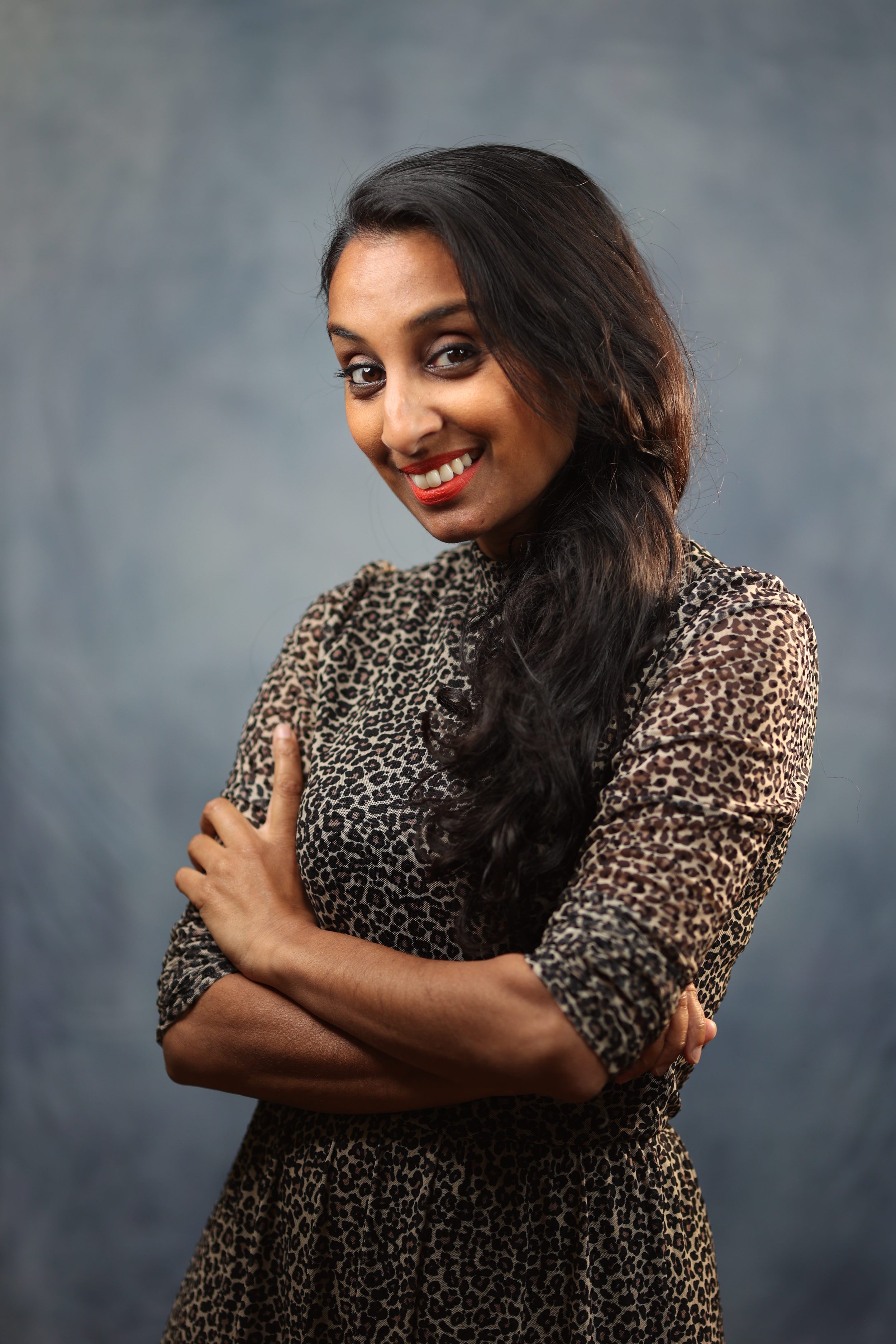PROJECT WWHA: What’s the first time you remember noticing your own arm hair? How did it come up?
LEEMA: The first time I became aware of my arm hair, I was around 12 years old. One of my Aunts used to shave her arms and suggested I do the same too. This was pretty much the norm if you came from a South Indian background so I didn’t think much of it and quite liked the smooth feel of my arms after it had been done. What I hated was the stubble growth after and was always self conscious in case anyone accidentally rubbed past me and felt it too. That’s when I was encouraged by my aunt to epilate instead but I found that whole process way too painful so stuck to shaving instead..
PROJECT WWHA: What emotions did you work through when you first found challenges around your arm or body hair?
LEEMA: We grew up in a predominantly white area in England and my sisters and I were pretty much the only Asians at our school. I was fortunate however to never have anyone comment about my body hair but I became more aware of it by the age of 16. That’s when I started to get electrolysis on my upper lip which was incredibly painful and I still have a little scar as a reminder. To this day that burning smell and tea tree oil takes me back and sends shivers down my spine!
PROJECT WWHA: Did you ever, and how long if at all, did you remove your arm hair?
LEEMA: By the time I went to Medical school in London, every single Asian girl there went to great lengths to remove all body hair. I followed suit and started to bleach all the hair on my face and tried every single form of hair removal including sonar, threading, waxing, light therapy and finally laser. The bleaching was ridiculous as I would literally have blond hairs decorating my dark skin and in hindsight made it look so much worse. I was teased by a couple of immature boys and naturally it got me down. This fueled my need to fork out vast amounts of money and spend hours on hair removal methods. I felt ugly and ashamed. I became insecure as my confidence took a huge knock.
PROJECT WWHA: What changed for you when you decided to let your arm hair be?
LEEMA: My arm hair started to become slightly less of an issue as over the years, waxing eventually reduced the hair growth to a more manageable amount. I only stopped waxing just as the pandemic hit 2.5 years ago. I wasn’t going out as much so I let the hairs grow. I also noticed that my 5 year old daughter who is of dual heritage with light skin started to have darker hairs on her arms and legs. Her cousin a year older and of a similar colouring had got upset when a child innocently pointed out the hairs on her leg at school one day.
That’s when I decided to broach the subject with my daughter and put a very positive spin on it, saying how lucky she was as her hair would always keep her warm. I encouraged her to tell people she was proud of it if anyone should ever point it out and from that day on made a promise that I would stop waxing my arms and embrace it too. I now love how soft it feels and my daughter loves hers too.
PROJECT WWHA: What prompted writing a children’s book about arm and body hair?
LEEMA: Shortly after I was inspired to write a children’s book about it as I felt if I’d have had that resource as a child, I wouldn’t have seen it in such a negative light. I also wanted to create something for children growing up to read and have fun with. I want them to welcome just how different all our bodies are and that that really is something to sing and dance about!
PROJECT WWHA: How do you think that most young women in the next decade will feel about their arm or body hair?
LEEMA: Over the next decade I hope that having hairy arms won’t be such a stigma. I think it’s great that celebrities like Penelope Cruz and Mo’nique flaunt their beautiful arm and leg hairs for the world to see just how normal it should be. I pray girls will feel the need to conform less although the negative side of social media and what some see as the ‘ideal body’ does still scare me.
PROJECT WWHA: How is Project WWHA doing at normalizing arm hair? What could we do better?
LEEMA: That’s where Project WWHA is doing a pivotal job of portraying women with hairy arms in such a gorgeous light. I am not aware of any other resources that specifically speak to arm hair empowerment.
PROJECT WWHA: What did seeing other women with arm hair on Project WWHA do for you? Did you show it to anyone else?
LEEMA: I showed the pictures to my sisters who were blown away by them. We could all have done with this when we were growing up and the world is lucky that you are taking on this positive mission. Thank you.




